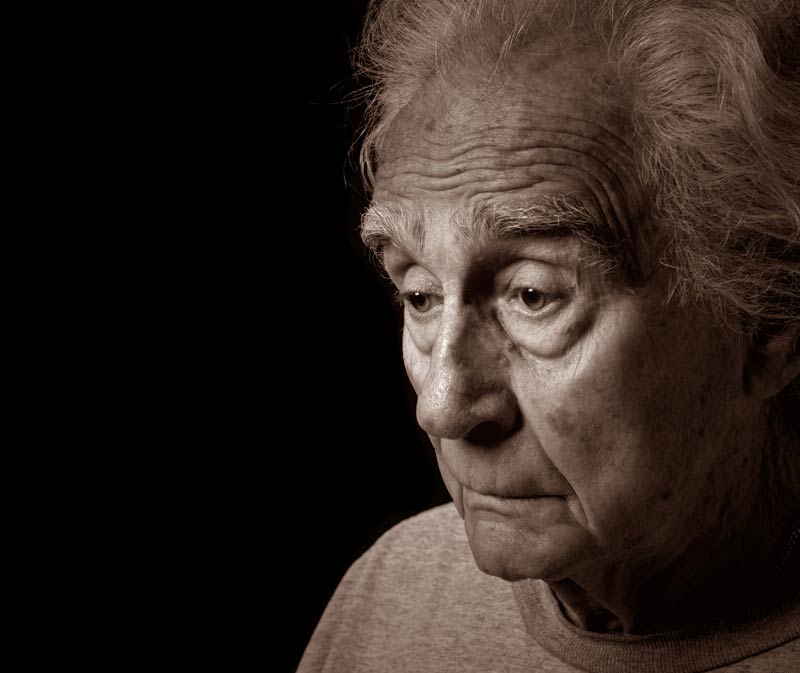Depression Soars in Obese Seniors

Get the world’s most fascinating discoveries delivered straight to your inbox.
You are now subscribed
Your newsletter sign-up was successful
Want to add more newsletters?

Delivered Daily
Daily Newsletter
Sign up for the latest discoveries, groundbreaking research and fascinating breakthroughs that impact you and the wider world direct to your inbox.

Once a week
Life's Little Mysteries
Feed your curiosity with an exclusive mystery every week, solved with science and delivered direct to your inbox before it's seen anywhere else.

Once a week
How It Works
Sign up to our free science & technology newsletter for your weekly fix of fascinating articles, quick quizzes, amazing images, and more

Delivered daily
Space.com Newsletter
Breaking space news, the latest updates on rocket launches, skywatching events and more!

Once a month
Watch This Space
Sign up to our monthly entertainment newsletter to keep up with all our coverage of the latest sci-fi and space movies, tv shows, games and books.

Once a week
Night Sky This Week
Discover this week's must-see night sky events, moon phases, and stunning astrophotos. Sign up for our skywatching newsletter and explore the universe with us!
Join the club
Get full access to premium articles, exclusive features and a growing list of member rewards.
Older adults who are obese are also likely to struggle with depression, a new study finds.
The finding was particularly strong in adults between the ages of 60 and 74, for whom being obese quadrupled the risk of depression.
"This is the preliminary work to think about, 'What are the interventions we need to design for this population?'" study researcher Laura Barre, a postdoctoral researcher at the Dartmouth Institute for Health Policy and Clinical Practice in New Hampshire, told LiveScience. "Right now we treat depression and obesity separately, and we probably need to be treating them together."
Barre presented the research Saturday (March 19) at the annual meeting of the American Association for Geriatric Psychiatry in San Antonio, Texas.
Linking weight to mood
The study is not the first to link obesity to depression. A 2010 Gallup poll found that obese Americans were more likely to report negative emotions like sadness and worry. A 15-year study published in 2010 in the American Journal of Public Health found evidence that depression causes weight gain: Young adults who were depressed gained weight faster than others in the study, but being obese in the first place didn't contribute to later depression.
There's little research on the links between weight and mood in older adults, Barre said. She and her colleagues analyzed data from almost 1,000 senior citizens in New York. One group of seniors lived in assisted living homes. The others lived in their own homes but either got meals delivered to them or ate meals with others at a senior center.
Get the world’s most fascinating discoveries delivered straight to your inbox.
The researchers found that the likelihood of depression increased steadily with body mass index, or BMI, a measure of height and weight that estimates fatness. About 12 percent of people with BMIs in the "normal" range had depression, the study found. In overweight people, that number rose to 14 percent.
People in the obese class I category — BMIs between 30 and 34.99 — saw another 2 percent increase in depression rates, bringing them to 16 percent. Similarly, 18 percent of people with BMIs over 35, who fall into the obese class II or III categories, were depressed.
That means that older adults with BMIs above 35 are 1.5 times more likely than normal-weight individuals to be depressed, Barre said. [Read: Does Old Age Bring Happiness or Despair?]
At-risk seniors
The researchers broke down the data further, comparing different demographics. They found that among both women and white people as a whole, being overweight actually reduced the risk of depression by 20-40 percent. The finding could be related to problems with using BMI measurements to estimate obesity in older adults, Barre said. Height and fat distribution change with age, so BMI is an imperfect measure of obesity in older adults, she said.
But for those same groups, BMIs that put seniors in the obese category raised the risk of depression by 1.5 to 2.4 times, Barre said, suggesting that any treatments or psychological interventions should focus on people who are extremely heavy, not just slightly overweight.
People between the ages of 60 and 74 were at the greatest risk of depression concurrent with obesity, Barre said. In that group, being obese raised the risk of depression four times.
Keeping quality of life
The research looks at people at one moment in time, so Barre and her colleagues can't say whether depression causes obesity, obesity causes depression or some other factor contributes to both. But the finding highlights the need to think about the two problems side-by-side, Barre said.
In the group of seniors who ate together at a community center, Barre said, 38 percent were obese. Of that 38 percent, 31 percent were depressed. That's a significant number of people, she said.
"They're at high risk for functional decline, earlier nursing home placement and being homebound," Barre said. "What we really need to be thinking about is how obesity impacts functioning and quality of life in older adults."
You can follow LiveScience senior writer Stephanie Pappas on Twitter @sipappas.

Stephanie Pappas is a contributing writer for Live Science, covering topics ranging from geoscience to archaeology to the human brain and behavior. She was previously a senior writer for Live Science but is now a freelancer based in Denver, Colorado, and regularly contributes to Scientific American and The Monitor, the monthly magazine of the American Psychological Association. Stephanie received a bachelor's degree in psychology from the University of South Carolina and a graduate certificate in science communication from the University of California, Santa Cruz.
 Live Science Plus
Live Science Plus










